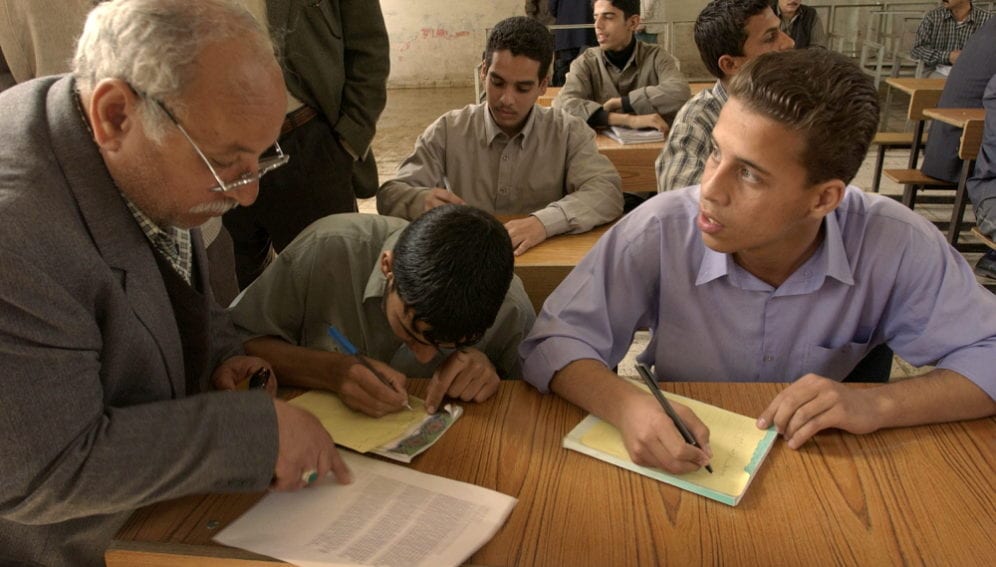Send to a friend
The details you provide on this page will not be used to send unsolicited email, and will not be sold to a 3rd party. See privacy policy.
It is unsurprising that the advance of the self-styled Islamic State (ISIS) across Iraq and Syria has had a devastating impact on education. Many students and researchers have fled areas of Iraq that ISIS has captured and even in places that the national government still holds, confusion remains about how the safety and access of academics and students are being secured.
What may be less obvious are the longer-term implications of this sequestering of students on fragile states. In theory, tertiary level learning and research have a trickle-down impact on long-term development outcomes. Given that these kind of pressures on research and higher education infrastructure — whether they have a political basis or are due to natural calamities — are likely to recur in low-income countries, it is worth taking a moment to reflect on what we might learn.
There are two lessons, the first about educational investment and the other about the links between research and policy.
Fail-safe planning
The flight of students and researchers from their universities — and the ensuing chaos in research and teaching activities — highlights the value of planning education at a national and regional level. When a situation like this occurs in a country such as Iraq, which has only one or two high-quality universities, the students at those institutions are left stranded.
The much-contested idea that it is more efficient to invest in a handful of centres of excellence, each with its own research specialism, may have its value and place. But perhaps educational specialists need to consider different strategies in politically unstable regions — and indeed in other vulnerable nations — such as spreading resources across numerous institutions.
In fragile states the focus needs to be on resilience. It is by supporting and sustaining a core cadre of tertiary students and researchers that nations build a basis on which collective wellbeing might be achieved.
There is also a lesson from the Ebola crisis about the importance of having multiple fail-safe mechanisms in the event of a crisis. Health systems in richer countries are generally thought to be more prepared because a number of such mechanisms are already built into response plans. The key to containment is these redundancies: it is the multiple levels of protection — from the disposal of equipment to the protective gear for staff even for routine check-ups — that ensure safety.
“These stories challenges the assumption that in situations with this level of fragility all research ceases along with the local appetite for its use. ”
Nick Ishmael Perkins
Likewise, vulnerable nations should prioritise building redundancies into education provision. Apart from spreading funding between different institutions, this could mean investing in measures such as backup servers that allow students to access course materials remotely. The investments would need to be long term; but then no country emerges from a fragile condition — be it political or otherwise — rapidly. And there is little evidence to suggest that focusing public finance on a few centres of research excellence is key to driving stability and prosperity, so in that respect there is little to be lost by trying a fresh approach.
Technical advisors needed
Another dimension of the ISIS story provides an opportunity to reflect on the links between policy and research. Recognising that academic staff were fleeing, ISIS issued a statement in October essentially threatening to confiscate their equipment and property if researchers did not return.
A report published by the UK Department for International Development in July describes two major barriers to research uptake at policy level: lack of capacity and lack of incentives. [1] In that light, ISIS’s apparent interest in research warrants unpacking.
There is, of course, a well-established link between Islamic religious doctrine and science, as an article by SciDev.Net founder David Dickson makes clear. Do ISIS’ threats show that this tradition continues in its version of Islam? Is it possible that ISIS is concerned about the scientific productivity of its would-be caliphate? If that is the case, it would give rise to the tantalising possibility that science might provide an opportunity for some tentative dialogue between ISIS and the West.
On the other hand, with limited public utilities, including internet connectivity, and no cadre of policy analysts to support the interpretation and use of research in ISIS-held areas, one wonders how much thought ISIS could have given to scientific capacity in the region it controls. Is it struggling with incentives but no capacity? Or is the notion of incentives for research uptake so quaint as to be unworkable in a complex game of realpolitik? It is unclear if the fighters are being cynical or naive here.
And this speaks to a fundamental dilemma for those who invest in research in developing countries.
This is not about safeguarding the investments of rogue governments or the ambitions of morally perverse factions. Earlier this year for example, an international research centre supported by UN funds found itself caught between the Syrian rebels and the government as it negotiated access for researchers.
These stories challenge the assumption that in situations with this level of fragility all research ceases along with the local appetite for its use. Perhaps it is just politically expedient to make this assumption because it is deemed too complicated and marginal to mobilise support for research in these contexts?
This may be an understandable position but — at the very least — we should be doing more to learn about research in states of fragility. There is, sadly, a rich history of conflict and crises to draw from.
Nick Perkins is the director of SciDev.Net. @Nick_Ishmael
References
[1] Kirsty Newman What is the evidence on the impact of research on international development? (DFID, July 2014)














